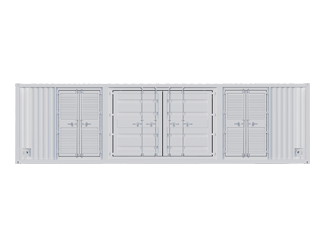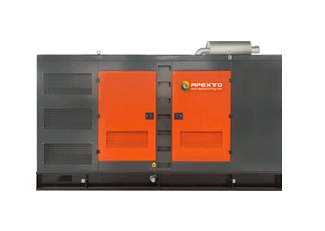BTC RATE
All CoinsWeighted average BTC rate
BTC exchange rate change
BTC characteristics
About Bitcoin
What is Bitcoin?
Bitcoin (BTC) is a decentralized cryptocurrency that was first described in a 2008 whitepaper by an individual or group of individuals using the alias Satoshi Nakamoto.
Officially launched in January 2009, Bitcoin is a peer-to-peer online currency that allows transactions to happen directly between equal and independent network participants without the need for any intermediary.
Bitcoin is digital money that cannot be inflated or manipulated by any individual, company, government, or central bank. Bitcoin is recognized as one of the initial cryptocurrencies to come into use and has inspired the development of thousands of competing projects. There will only ever be 21 million BTC.
Bitcoin is highly divisible, with its smallest unit, i.e. 0.000 000 01 BTC, called a "satoshi" or "sat." As bitcoin's value has risen, its easy divisibility has become a key attribute.
How does Bitcoin work?
Bitcoin's revolutionary innovation was the introduction of the blockchain, a decentralized software system that functions as a ledger, recording every transaction ever made with Bitcoin. Unlike traditional banking ledgers, the Bitcoin blockchain is distributed and verified across a network of computers. This means no single company, government, or third party controls it, and anyone can join the network.
New bitcoins enter circulation through a process known as mining, where participants solve complex mathematical puzzles to discover a new block that gets added to the blockchain. The first individual or group to successfully solve the puzzle is rewarded with a specific number of bitcoins.
Bitcoin offers global accessibility. Anyone with an Internet connection can send, receive, and hold Bitcoin by using the public version of their cryptographic key, which allows them to securely receive funds without exposing their private key.
Pick the perfect miner from our catalog to start mining Bitcoin for you!
GoWhat is Bitcoin mining?
Bitcoin is often viewed as a "store of value," much like gold. New bitcoins are generated through a process called "mining," with a total supply capped at 21 million coins. Bitcoin mining involves thousands of computers worldwide competing to verify and record transactions on the network. These machines, known as "mining rigs," perform complex calculations to confirm and log each new transaction.
In Bitcoin's early days, a regular desktop PC was sufficient for mining, making it accessible to anyone curious about the process. However, mining has since become more competitive, requiring highly specialized and powerful machines. Today, most mining is done by large companies or groups of individuals pooling their resources to maximize efficiency.
As of October 2021, researchers at Cambridge University estimate that miners based in the U.S. account for the largest share of global Bitcoin mining by country.
FAQ
What Makes Bitcoin Unique?
Bitcoin’s most significant advantage lies in its status as the very first cryptocurrency, which helped lay the groundwork for an entirely new financial landscape. Its introduction sparked a movement, creating a vast global community of enthusiasts who trade, invest in, and use Bitcoin and other cryptocurrencies in their daily lives. This first step in the world of digital currencies inspired the development of thousands of competing projects.
The concept behind Bitcoin — a form of money that can be sent and received globally without relying on intermediaries like banks or financial institutions — has grown into a market now worth over $2 trillion. Bitcoin’s innovation provided the foundation for the entire cryptocurrency ecosystem, making it possible for millions to engage in decentralized financial transactions. Despite the rise of numerous alternatives, Bitcoin has maintained a leading position in the crypto space for more than a decade. Although it no longer holds absolute dominance, it remains the largest cryptocurrency by market cap, which surpassed $1 trillion in 2021. On April 14, 2021, Bitcoin reached an all-time high of $64,863.10, fueled by growing institutional interest and the increasing availability of services that support Bitcoin — from wallets and exchanges to payment platforms and online games.
How Much Bitcoin Is in Circulation?
Bitcoin’s total supply is capped by its software at 21 million coins, and it can never exceed this limit. Unlike some other cryptocurrencies, Bitcoin wasn’t premined, meaning no coins were mined or distributed to its founders before it was made available to the public. However, in the early days of Bitcoin, mining was less competitive, allowing early adopters to accumulate large amounts of Bitcoin. It’s widely believed that Satoshi Nakamoto, Bitcoin’s mysterious creator, holds over a million BTC.
New bitcoins are created through the mining process, where miners package transactions into blocks and secure them using complex cryptographic algorithms. As a reward for their computational work, miners earn a certain number of bitcoins for each block they add to the blockchain. When Bitcoin launched, the reward was 50 bitcoins per block, but it gets halved every 210,000 blocks — approximately every four years. By 2020, the reward had already been halved three times, reducing it to 6.25 bitcoins per block.
The profitability of Bitcoin mining depends on factors such as the network's hash rate and the current price of Bitcoin. As of mid-September 2021, the block reward of 6.25 BTC was worth approximately $299,200. While the mining process is complex, what matters most is how long it takes to mine one block, rather than just one Bitcoin. For more details, CoinMarketCap Alexandria provides deeper insights into the mining process and timing for Bitcoin.
What Is Bitcoin’s Role as a Store of Value?
Bitcoin, the first decentralized peer-to-peer digital currency, serves multiple roles, one of which is its use as a decentralized store of value. While it can function as both a physical asset and a unit of account, its role as a store of value has sparked debate. Many crypto enthusiasts and economists suggest that as Bitcoin sees wider adoption, we could enter a new financial era where transactions are commonly denominated in smaller units of Bitcoin.
These smaller units, known as Satoshis (or "Sats" for short), represent the smallest denomination of Bitcoin at 0.00000001 BTC. At the current Bitcoin price, one Satoshi is worth around $0.00048.
For many, Bitcoin is viewed more as a store of value, akin to gold, rather than a practical currency. This perception has led many investors to buy Bitcoin with the intention of holding onto it long-term (often referred to as "HODLing") instead of spending it as they would traditional currency, like dollars. This mindset positions Bitcoin as digital gold, a valuable asset to be saved rather than spent.
How Much Is Bitcoin?
Bitcoin’s price is constantly fluctuating, making it a highly dynamic and global asset. Starting from less than a penny per coin, Bitcoin has experienced massive price increases, climbing thousands of percent to the levels it reaches today. The volatility of all cryptocurrencies means that the value of Bitcoin can change minute by minute.
There are also moments when Bitcoin prices vary between countries and exchanges, influenced by a person’s geographic location. As a result, understanding Bitcoin’s exact value can depend on where you are and which platform you’re using to track it.

 Solo Miner
Solo Miner
 Bitcoin
Bitcoin
 Dogecoin
Dogecoin
 Aleo
Aleo
 Kaspa
Kaspa
 ALPH
ALPH
 Nexa
Nexa
 ETC
ETC
 CKB
CKB
 Dash
Dash
 Kadena
Kadena














































